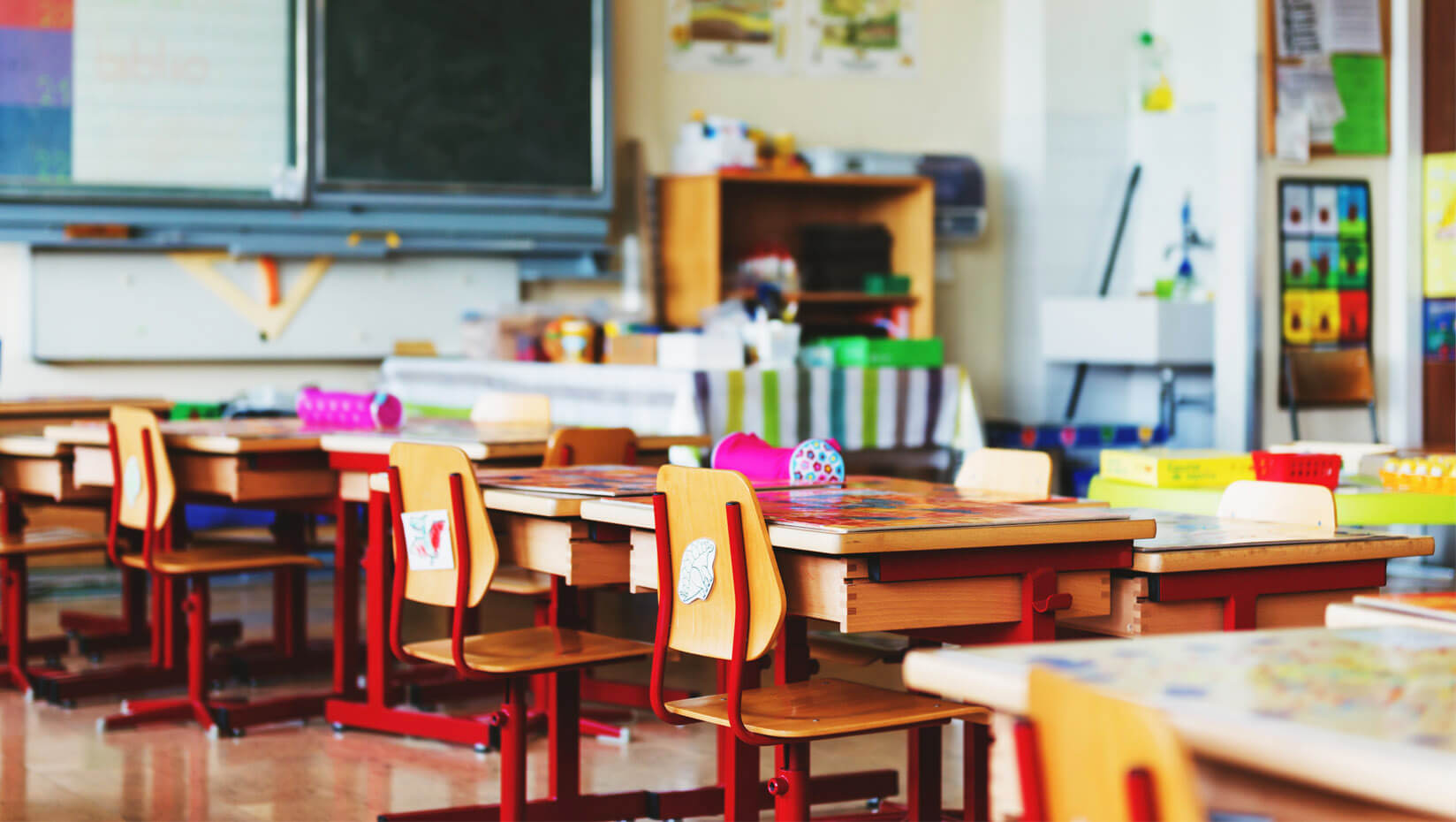
UMaine researchers release report on reopening Maine schools based on local districts’ initial coronavirus responses
When the coronavirus forced schools across the country to halt in-person instruction in March, many districts in Maine chose to focus on whole child well-being as part of their pandemic responses.
Maine schools also tried to strike a balance between supports for families and possible disease exposure for teachers, staff and others in the community. Another common approach was to engage in strategic and even new community partnerships.
These responses form the foundational principles for meeting the needs of Maine students and families as schools look to resume in-person classes in the fall, according to a new report released by a team of researchers in the University of Maine College of Education and Human Development.
“Many districts adopted a ‘hold harmless’ approach to student learning that focused on supporting student and parent physical and mental health as much as or more than academic learning,” the report says.
“Moving beyond crisis schooling: What can we learn from the innovation of Maine districts to support remote student learning from March–June 2020?” is available online. It was produced by associate professor of educational leadership Catharine Biddle and Maria Frankland, a lecturer of educational leadership, as well as student research assistants Ryan Crane, Brooke Sulinski and William O’Neil.
The researchers analyzed public communications and resources from every district in the state, offering a glimpse into how educators managed the early months of the pandemic. They looked at nearly 2,000 documents, including letters from superintendents to families, remote learning resources, guidance department websites, websites with health and wellness strategies, COVID-19 blogs, videos and social media feeds.
The report highlights some of the most innovative responses to help guide Maine districts through the complexities of planning for a new school year with the virus still a threat.
“We know that Maine school leaders and educators learned a great deal between March and June of this year as they worked to refine their response to school closure and resume student learning amongst very challenging circumstances,” the authors write.
The foundational principles that the team identified “support the frame of mind necessary to innovate to meet the needs of students and families in an environment characterized by a high degree of uncertainty and information that has, at times, changed on an almost daily basis,” the report says.
Many districts were doing novel things before the pandemic, but still had to adapt to the new reality of the coronavirus. For example, many schools were engaged in strategic community partnerships prior to the virus. But since March, such collaborations have taken on new importance, and the authors of the report say they “will pay dividends in student learning by reducing the stress of survival in a challenging and uncertain time.”
In addition to the foundational principles, the report includes about 30 specific recommendations of best practices, organized around the Maine Department of Education’s “Framework for Returning to Classroom Instruction.” Specifically, the researchers base their suggestions on Part IV of the framework, “Common Expectations for Hybrid and Remote Learning Models.” All of the examples come from actual responses by Maine districts, and the report itself links to districts’ websites so other educators can see how the ideas were implemented in practice. The recommendations include:
- Clearly articulate expectations for teachers, students and families using remote learning compacts
- Do not expect students to attend every class, every day
- Provide information regarding where students and families may access the internet throughout the community
- Make clear how students and families can get technical support for their devices
- Provide families with information and strategies for coping with anxiety, depression, and other mental health concerns
- Create opportunities for routine open check-ins with school counselors
- Use a web-based social and emotional learning curriculum
- Create school or district wide projects to promote mental health and wellness for students, faculty, and caregivers
- Recognize diverse family structures and living arrangements for students
- Work with a local food pantry distribution center to start a food pantry at your physical school sites that will remain open if the school buildings close
- Create space on your district website dedicated to housing a one-stop shop for remote/hybrid schooling
- Establish office hours for building and district administrators so caregivers can ask questions and obtain answers directly from decision-makers
The report is the first of several that will be released during the 2020–21 school year by the UMaine researchers, who are studying coronavirus responses in Maine and Pennsylvania schools. The research was made possible in part by a grant from the Spencer Foundation.
The research team plans to hold a series of question and answer sessions via Zoom. Register online to attend one of the following sessions:
- Wednesday, Aug. 5, noon–1 p.m.
- Thursday, Aug. 6, 4:30–5:30 p.m.
- Wednesday, Aug. 12, 9:40–11:10 a.m. (part of Community Learning 4 ME’s 1 Fall: 3 Plans Conference)
To read the report and download a PDF copy, go to umaine.edu/beyond-crisis-schooling.
Contact: Casey Kelly, casey.kelly@maine.edu
